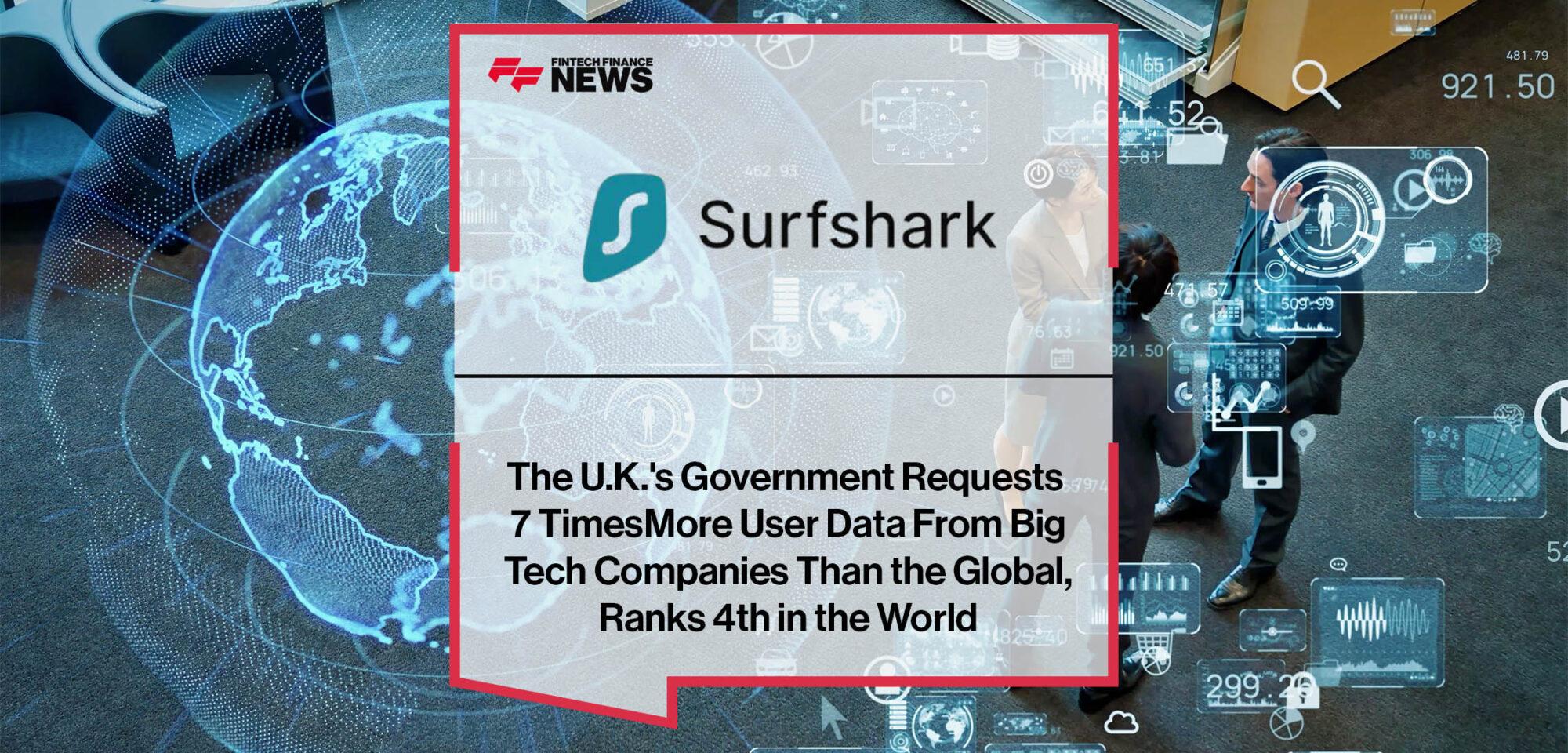Breaking News

The U.K.’s Government Requests 7 Times More User Data From Big Tech Companies Than the Global Average, Ranks 4th in the World
From 2013 to 2021, Meta and Microsoft received the highest number of account requests from the U.K. The latest Surfshark report analyzes the number of accounts specified in user data requests for Big Tech by the local authorities and law enforcement agencies. In total, over 6.6 million accounts were requested in 177 countries from 2013 to 2021, with a steady increase in the latest years. The U.K. ranks 4th globally with 583.4 accounts requested per 100k people. The research shows that U.S. and EU authorities request data the most. Apple complied with the most user data requests (82%), compared to Meta, Google, and Microsoft (72%, 71%, and 68%, respectively).
Surfshark’s research analyzes the just-released information on user data requests that Apple, Google, Meta, and Microsoft received from 177 countries’ local authorities between 2013 and 2021. The cases of requests may be related to criminal investigations, as well as civil or administrative cases when digital evidence is needed.
The research shows that globally, countries requested more than 6.6 million accounts combined during the 9-year period, while the U.K. requested 392k. Looking at requested accounts per population, the U.K. ranks 4th in the world and 2nd in Europe based on the user accounts requested by authorities over this time period (583.4 accounts per 100k people), in comparison to Germany (2nd with 648 accounts/100k), Ireland (6th with 396 accounts/100k) and Denmark (34th with 81 accounts/100k). The U.K. made 7 times more requests than the global average (87.9/100k).
Global trends show that governments request more user data than ever
The number of accounts requested increased more than five times from 2013 to 2021, with 2021 seeing a year-over-year increase of around 25%. The U.K. shows the same trend, with a 159% increase from 2013 to 2021. Requested accounts grew by 8% in 2021 compared to 2020.
“Besides requesting data from technology companies, authorities are now exploring more ways to monitor and tackle crime through online services. For instance, the EU is considering a regulation that would require internet service providers to detect, report, and remove abuse-related content,” says Gabriele Kaveckyte, Privacy Counsel at Surfshark. “On one hand, introducing such new measures could help solve serious criminal cases, but civil society organizations expressed their concerns of encouraging surveillance techniques which may later be used, for example, to track down political rivals.”
The U.S. and Europe account for around 60% of all accounts of interest from 2013 to 2021. To compare the two, the U.S. requested more than double the accounts per 100K people than all EU countries combined. Looking at the top 10, five countries are from the EU. Singapore, the UK, Australia, and Taiwan comprise the rest.
Over the 9 years, companies fully or partially disclosed data from around 2.5 million requests. The overall disclosure rate in the U.K. is 81.6%. Meta and Microsoft are the ones that have received the highest number of account requests from authorities in U.K.
Globally, from 2013 to 2021, the disclosure rate grew by almost 71%. Apple has been leading in disclosure rates since 2016, raising them from 75% in 2016 to 86% in 2021. While Apple’s average is 82%, the remaining companies have slightly lower disclosure rates: Meta – 72%, Google – 71%, and Microsoft – 68%.
Companies In This Post
- Bluefin and Basis Theory Partner to Enable Unified Tokenization Across Digital and In-Person Payments Read more
- Invest Bank and AUTON8 Build Partnership to Drive Digital Resilience and Banking Agility Read more
- ING’s AI Roadmap: Platform, People, and Agentic AI Read more
- UK-fintech Provided Over £17.5m in Emergency Wage Advances to More Than 55,000 Employees in the Last Year Read more
- TreviPay Announces AI-Powered Growth Center to Help Enterprises Predict Buyer Behavior and Drive B2B Sales Read more
















